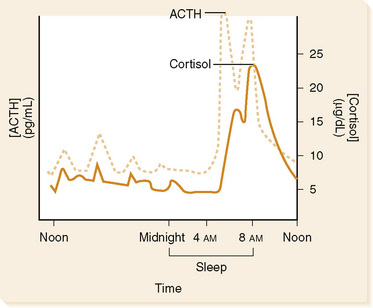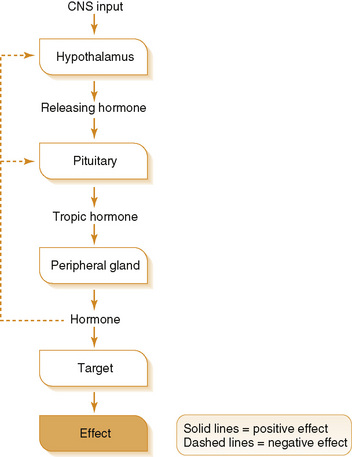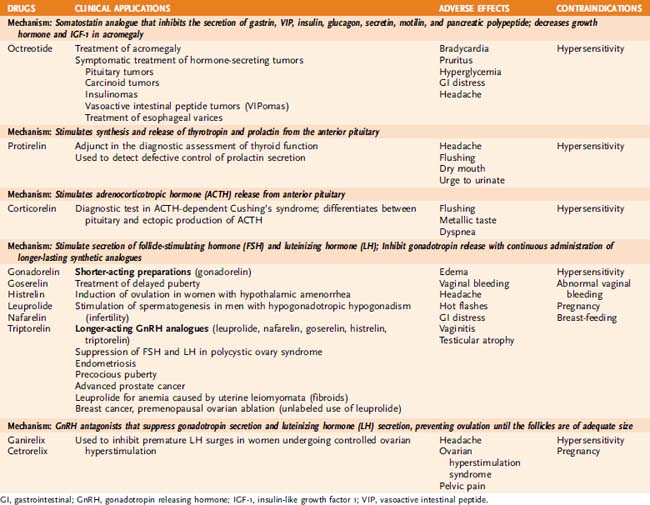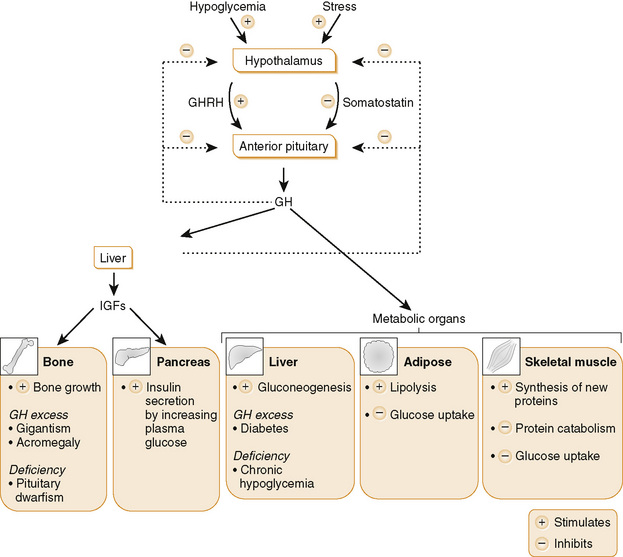Chapter 23 Drugs Used in the Treatment of Hypothalamic, Pituitary, Thyroid, and Adrenal Disorders
1. A hormone is a substance secreted by one tissue or gland that is transported via the circulation to a site where it exerts its effects on different tissues.
2. See Endocrine Physiology section of Rapid Review Physiology for a review of hormone signaling pathways and physiological mechanisms.
• Delayed increase in plasma ACTH with hypothalamic dysfunction but no increase with hypopituitarism
c. Stimulation test to distinguish hypothalamic from pituitary dysfunction in patients with decreased FSH and LH
BOX 23-2 Anterior Pituitary Hormones and Related Drugs
Chorionic gonadotropin (human); (LH)
Chorionic gonadotropin (recombinant); (LH)
Somatropin (recombinant human growth hormone)

23-7 Diurnal secretion of adrenocorticotropic hormone and cortisol. ACTH, adrenocorticotropic hormone.
(From Brown TA: Rapid Review Physiology. Philadelphia, Mosby, 2007, Figure 3-6.)
• All mineralocorticoids except aldosterone, which requires angiotensin II conversion of corticosterone to aldosterone
• Also stimulates granulosa cell synthesis of aromatase for conversion of testosterone synthesized in the theca interna to estradiol.
(1) In conjunction with chorionic gonadotropins (human) to induce ovulation and pregnancy in infertile women
(2) Stimulation of multiple follicle development in ovulatory patients as part of an assisted reproductive technology (ART)
(1) Stimulation of follicular development in infertile hypogonadotropic hypogonadal women with profound LH deficiency
(1) As part of an ART program, induces ovulation in infertile females who have been pretreated with FSH
(2) To induces ovulation and pregnancy in infertile females when the cause of infertility is functional
Stay updated, free articles. Join our Telegram channel

Full access? Get Clinical Tree






